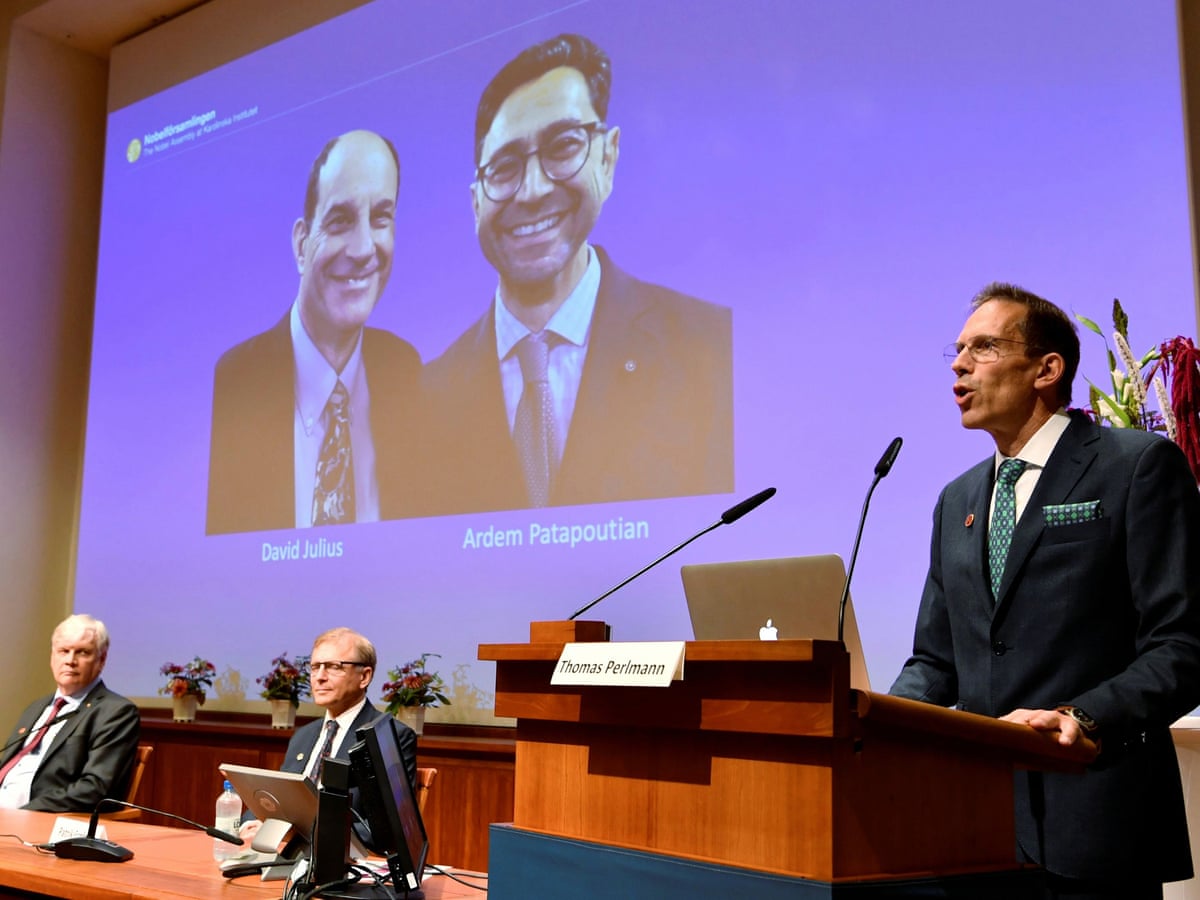
David Julius and Ardem Pataputian win the 2021 Nobel Prize in physiology and medicine for their “discoveries of receptors of temperature and touch”. Here’s all about the new Nobel laureates and their research.
All about the 2021 Nobel Prize winners in Physiology or Medicine
David Julius and Ardem Pataputian jointly take the 2021 Nobel Prize for their splendid work. “Our ability to sense heat, cold, and touch is essential for survival. And underpins our interaction with the world around us. (Diazepam) In our daily lives, we take these sensations for granted. But how are nerve impulses initiated so that temperature and pressure can be perceived? This question has been solved by this year’s Nobel Prize laureates,” stated the Nobel Assembly.
“These breakthrough discoveries launched intense research activities leading to a rapid increase in our understanding of how our nervous system senses heat, cold, and mechanical stimuli. The laureates identified critical missing links in our understanding of the complex interplay between our senses and the environment,” added the release.
“They were incredibly happy. And as far as I could tell very surprised and a little bit shocked,” noted Professor Perlman. Thomas Perlman is also the secretary-general of the Nobel Assembly and the Nobel Committee for Physiology or Medicine. Due to the pandemic, the Nobel ceremony is on hold once again. Additionally, the festive banquet in Stockholm moved, for the second year in a row. Both are due to rising concerns of international travel and the fast-spreading virus.
More on the Nobel Laureates

Julius used capsaicin. This is a compound present in chili peppers that makes us feel its hotness. In turn, this identifies a sensor in our nerve endings. Moreover, this sensor helps us respond to heat. Julius is affiliated with the University of California in San Fransisco. Previously, the New Yorker worked at New York’s Columbia University.
On the other hand, Pataputia used cells that are sensitive to pressure to discover a new class of sensors. These sensors respond to mechanical stimuli on internal organs and the skin. Pataputia, associated with the Howard Hughes Medical Institute, at California’s Scripps Research, La Jolla. He was born to Armenian parents in Lebanon. However, he moved to Los Angeles in his younger years. He learned of the news from his father since he was out of contact. “In science many times it is the things we take for granted that are of high interest. For us being in the field of sense, touch, and pain. This was the big elephant in the room where we knew they existed. We knew they did something very different,” said the new laureate.

“Our understanding of how the nervous system senses and interprets our environment still contained a fundamental unsolved question. How are temperature and mechanical stimuli converted into electrical impulses in the nervous system?” added the Nobel assembly’s statement. Both Julius and Pataputia’s works are groundbreaking when compared to the discoveries of the past. Additionally, this knowledge is crucial. After all, it can help in developing treatments for a wide range of conditions including chronic pain.






